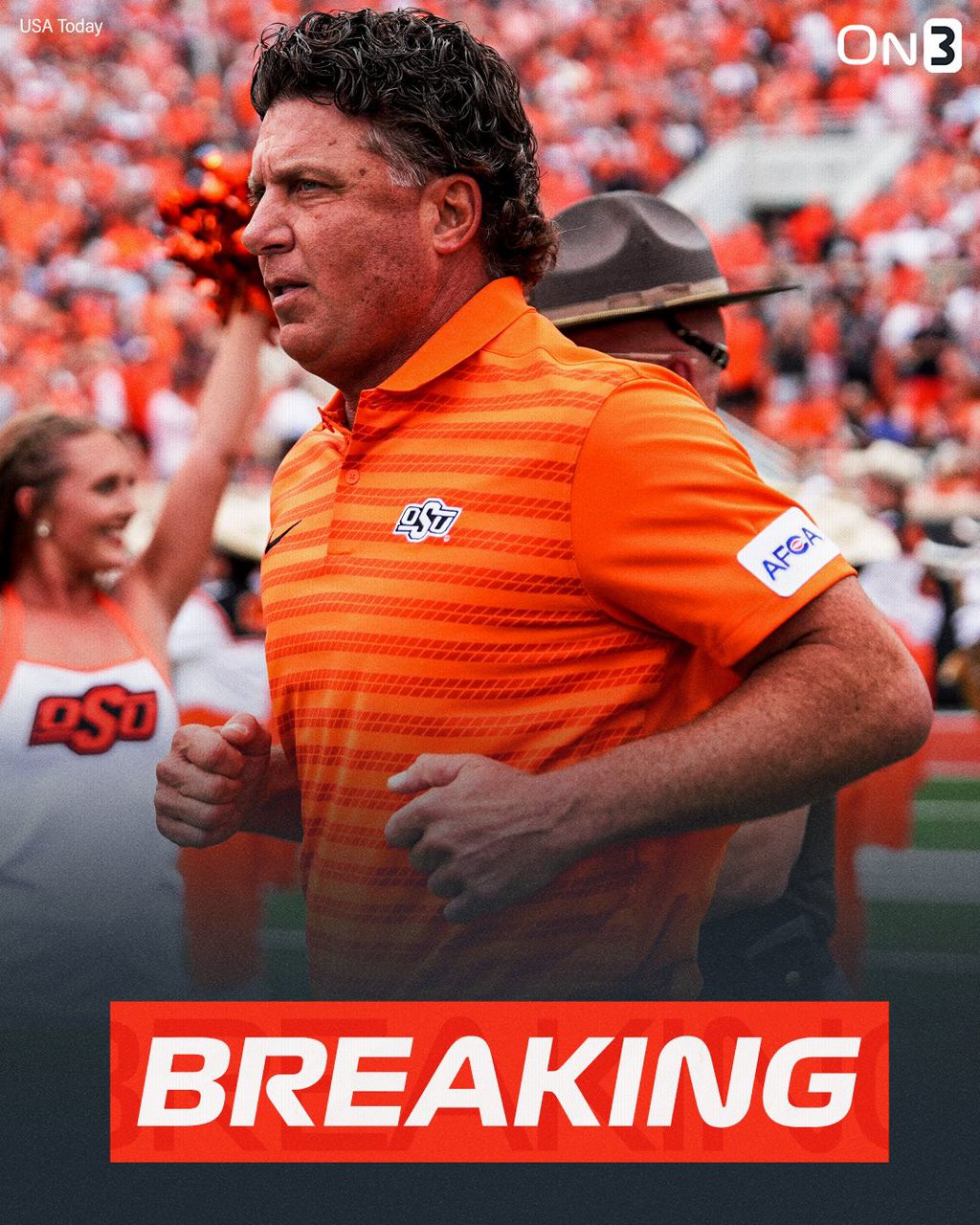Mike Gundy to Return as Oklahoma State Head Coach Following Standoff with University
Mike Gundy, the long-serving head coach of the Oklahoma State Cowboys football team, will return to lead the program after a tense standoff with the university. The resolution, confirmed by Brett McMurphy, marks the conclusion of a period of uncertainty that had raised questions about Gundy’s future at the school. This decision comes after discussions between Gundy and Oklahoma State officials, which highlighted both the challenges and loyalty within college football’s high-pressure coaching ranks.
Gundy, who has been the head coach of Oklahoma State since 2005, had faced scrutiny in recent years as the Cowboys’ performance fluctuated. Despite leading the team to numerous bowl games and an impressive 2008 Big 12 Championship appearance, the Cowboys’ inability to consistently compete at the highest levels had generated doubts. Gundy’s record at Oklahoma State stands at 158 wins and 70 losses, with the team regularly ranking among the top 25 in the nation. However, his inability to capture another Big 12 title after 2011 and occasional underwhelming seasons led to growing dissatisfaction from some fans and boosters.
The standoff, as reported by McMurphy, stemmed from a variety of factors, including differing expectations between Gundy and the university’s administration, as well as frustrations with the direction of the program. The COVID-19 pandemic had shaken the landscape of college athletics, with financial constraints and changes to scheduling formats putting added pressure on coaches and athletic departments. Additionally, rumors had swirled about potential candidates to replace Gundy, some suggesting that the school might pursue fresh leadership to guide the program into a new era. Amid these rumors, Gundy’s position became increasingly precarious, culminating in what was described as a tense and prolonged negotiation with university officials.
Despite the tension, Gundy’s return ultimately stems from a mutual understanding that he remains the right leader for the team. His tenure, while marked by moments of frustration, has also seen significant successes. Notably, he led Oklahoma State to the 2021 Fiesta Bowl, where the Cowboys defeated Notre Dame, further solidifying his status as one of the top coaches in college football. Moreover, his recruiting acumen and ability to develop talent in Stillwater has been a major asset to the university.
The standoff also involved broader discussions about the future of college football, as the sport undergoes a dramatic transformation. With the looming changes to the NCAA’s structure, including new rules for player compensation, name, image, and likeness (NIL) rights, and potential realignment of conferences, the stakes for college football programs have never been higher. In this climate, Gundy’s experience and stability were seen as key factors in maintaining the program’s competitive edge in a rapidly changing landscape.
Oklahoma State’s decision to keep Gundy on as head coach signals their commitment to a long-term vision, even amidst pressures from alumni, fans, and boosters. The program recognizes the importance of continuity and stability, which Gundy brings, and hopes to leverage his experience to navigate the challenges that lie ahead.
For Gundy, this resolution offers a sense of relief and an opportunity to continue building on his legacy at Oklahoma State. It also provides him with the platform to address criticisms and reaffirm his commitment to the program, ensuring that the Cowboys remain competitive in the Big 12 and on the national stage.
Despite the rocky negotiations, Gundy’s return reflects the complex and often contentious relationship between coaches, athletic directors, and university administrators. As college football continues to evolve, it’s clear that Gundy’s leadership will be critical as Oklahoma State navigates the new era of the sport. With the 2024 season approaching, the Cowboys and their loyal fanbase are now looking forward to the future with renewed optimism, hoping that the resolution of this standoff signals the beginning of a new chapter for the program.
